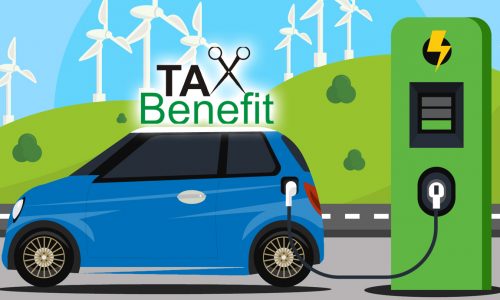The government needs to adjust the electricity tariff set by state-owned electricity company PT PLN in order to maintain continuity of the business in providing electricity, improving the quality of service to consumers, increasing the electrification ratio and encouraging more targeted electricity subsidies for household customers as well as the implementation of tariff adjustments for electricity. PLN noted that until April 2022, electricity sales had increased by 8.62% or with consumption reaching 88,803 GigaWatt hour (GWh) compared to the same period last year reaching 81,756 GWh.
Governing law and regulation
- Law No. 30/2007 on Energy
- Law No. 30/2009 on Electricity (the Electricity Law) as amended by Law No. 11/2020 on Job Creation
- Government Regulation (PP) No. 14/2012 on Electricity Supply Business Activity as amended by Government Regulation (PP) No. 23/2014
- Government Regulation (PP) No. 22/2020 as amended by PP No. 14/2021
- Government Regulation (PP) No. 25/2021 on the Implementation of Energy and Mineral Resources Sector
- Government Regulation (PP) No. 14/2012 concerning Electricity Supply Business Activities as amended by PP No. 23/2014
- Minister of Energy and Mineral Resources Regulation (Permen ESDM) No. 38/2018 on Electricity Procedures and Certification
- Minister of Energy and Mineral Resources Regulation (Permen ESDM) No. 11/2021 concerning the Implementation of Electricity Business
- Ministry of Energy and Mineral Resources Regulation (Permen ESDM) No. 4/2009 concerning Provisions for Electricity Distribution
- Minister of Energy and Mineral Resources Regulation (Permen ESDM) No. 28/2016 concerning Electricity Tariffs Provided by PT Perusahaan Listrik Negara (PLN) as last amended by Permen ESDM No. 3/2020
- Minister of Energy and Mineral Resources Regulation (Permen ESDM) No. 50/2017 on the Utilization of Renewables for Power Generation as last amended by Permen ESDM No. 4/2020
- Minister of Energy and Mineral Resources Regulation (Permen ESDM) No. 19/2017 on the Utilization of Coal for Power Generation and Purchase of Excess Power
Sell Power Approval
Indonesia recognizes two types of electricity sales:
- from one Electricity Supply Business Permit for Public Use (IUPTLU) to another IUPTLU, and
- from IUPTLU holders to end users.
IUPTLU is required for all entities involved in the business of selling electric power. However, for sales from one IUPTLU to another, the buyer must conduct a public auction, and the electricity purchase plan must comply with the electricity supply business plan that has been approved by the Minister of Energy and Mineral Resources. General tendering requirements do not apply, and the buyer can directly appoint the desired party, in the following circumstances: Where the electricity comes from generators using renewable energy, marginal gas, mine-mouth coal or other local energy, in connection with the purchase of excess electricity, in a crisis or emergency the provision of electricity, and the increase in power generation capacity at the same power plant operating in the same area. If the sale of electricity is in the context of energy diversification for non-fuel power plants, the buyer can compare and select at least two bidders who have submitted proposals.
Sale of power tariff
In Indonesian law, tariffs or regulations related to the sale of electricity are regulated. There are two types of electricity sales so there are two types of tariffs. For the sale of on-grid electricity (from one IUPTLU to another), the tariff is developed through a public auction process at a price agreed upon by the relevant authority (ESDM or governor). The government has provided several feed-in tariffs for purchasing electricity from Independent Power Producers (IPP) for certain power plants (e.g. Permen ESDM No. 50/2017 and Permen ESDM No. 19/2017).
In Indonesia, the term “tariff” is used in relation to the price of electricity to the end user. Based on PP No. 14/2012, the tariff for electricity sold to consumers is determined by the energy ministry or the governor, with the approval of the provincial legislative council (DPRD) or the House of Representatives’ Council (DPR). For PLN, as a state-owned enterprise whose license is granted by the government, the tariff is set by the energy ministry. The applicable tariff for PLN is determined from time to time and lastly based on Permen ESDM No. 28/2016. Under this regulation, rates vary depending on the use of electricity (for example, for household, business, or industrial use, or wholesale) and the power of the electricity (for example, 450 volt-amperes). In Indonesia, the electricity supply sector is monopolized by PLN and the electricity tariffs provided by PLN are divided into two categories: Regular postpaid tariffs and prepaid tariffs. Electricity is an item that has a strategic purpose so it is exempt from value added tax, except for housing with a power of more than 6,600 Watts.
Wholesale of power rate
Wholesale electricity rates are determined by the energy ministry or governor, with approval from the DPRD or DPR, depending on where wholesale electricity is generated and sold. For wholesale electricity provided by PLN based on the Permen ESDM No. 28/2016, the wholesale electricity threshold is electricity above 200 kilovolt-amperes.
Obligation of public service
The constitutional principle that underlies Law No. 30/2009 concerning Electricity (Electricity Law) is article 33 of the 1945 Constitution of the Republic of Indonesia, which regulates production fields that are vital for the state and control the livelihoods of many people under state power. The article also stipulates that land, water and natural resources of the state are controlled by the state and used for the greatest prosperity of the people. Therefore, the essence of the Electricity Law and the administration of electricity is to realize public welfare. According to the Electricity Law, electric power must be provided in sufficient quantities, of reliable quality, at reasonable prices and tariffs, for the welfare of the people, and able to achieve sustainable development.








